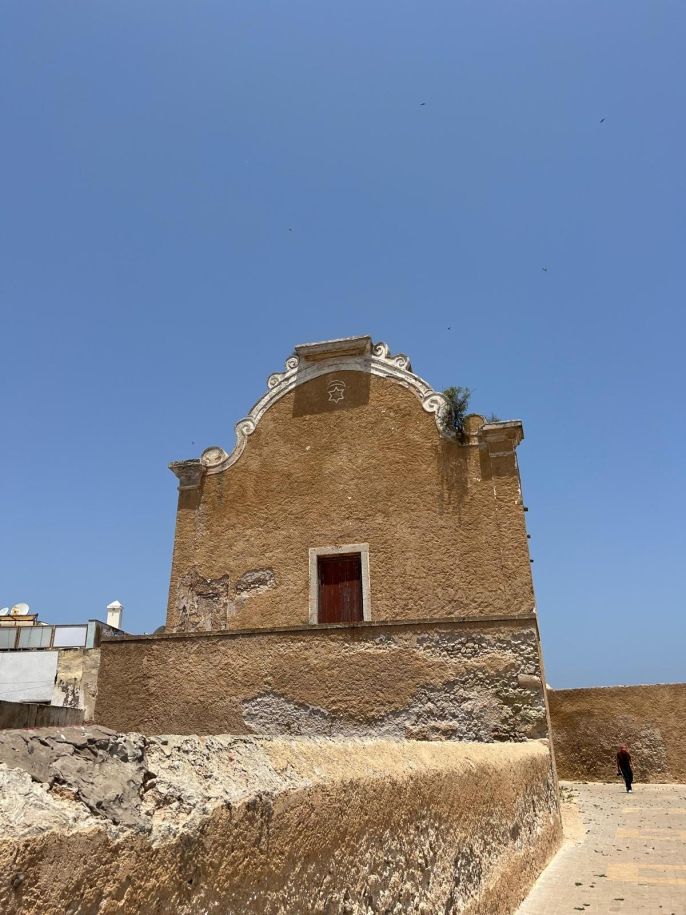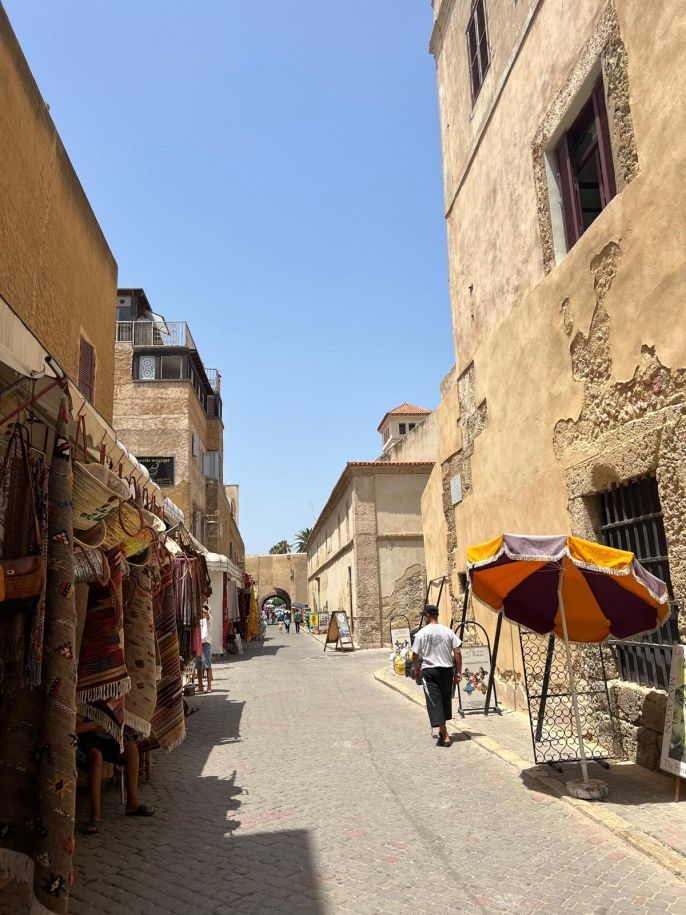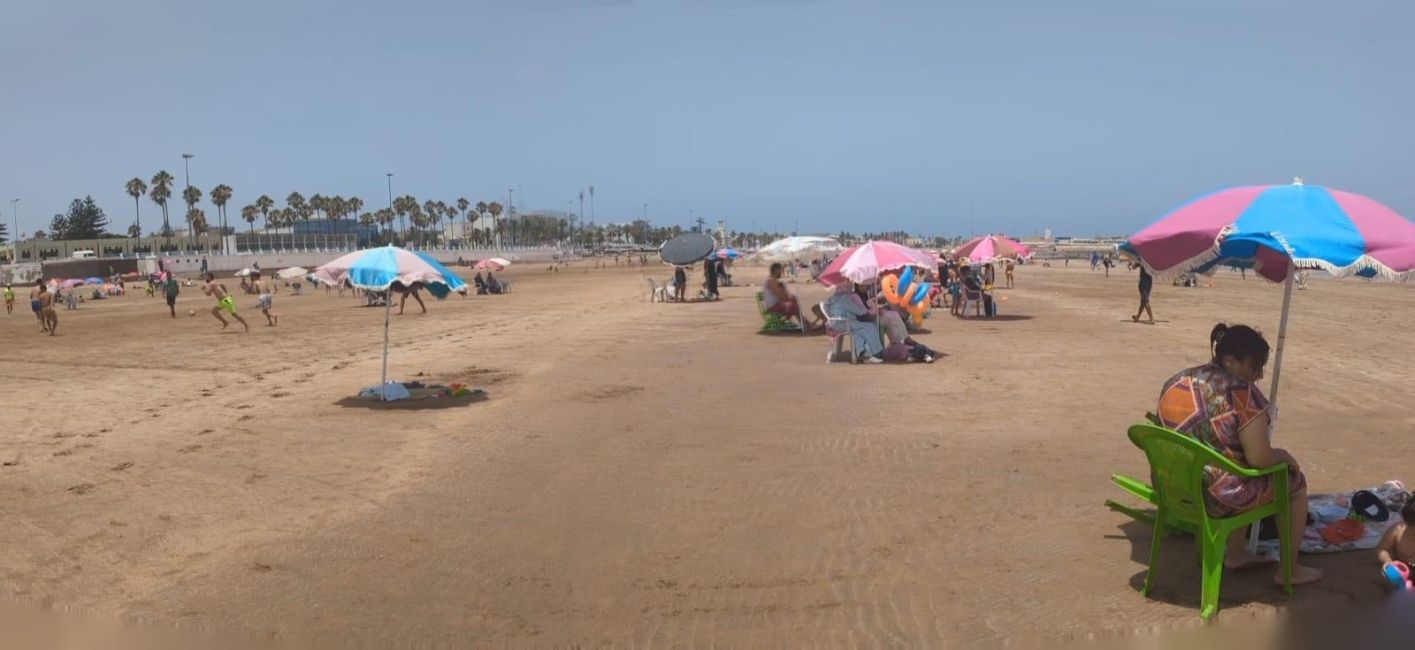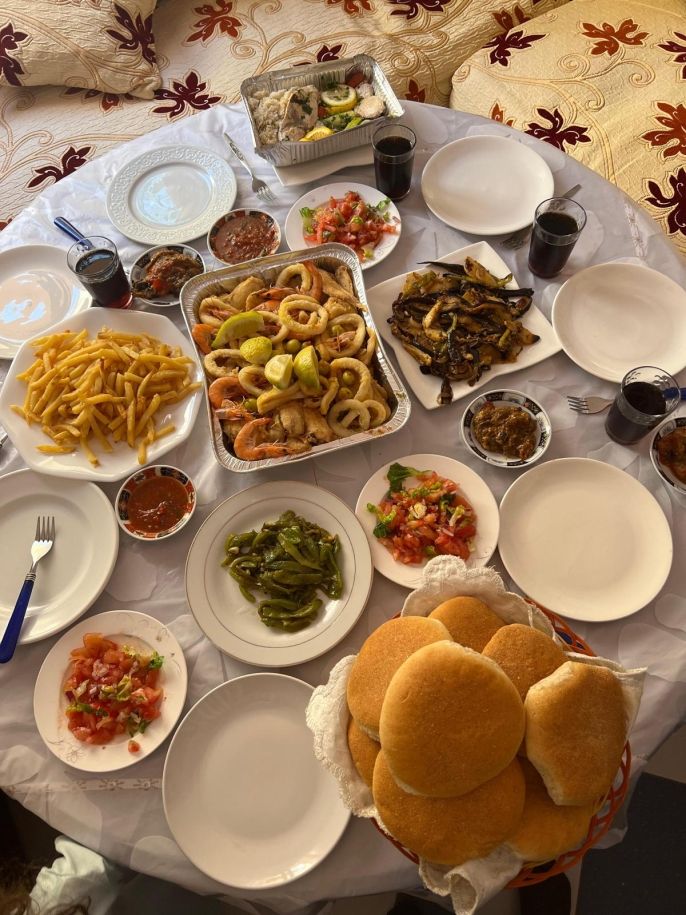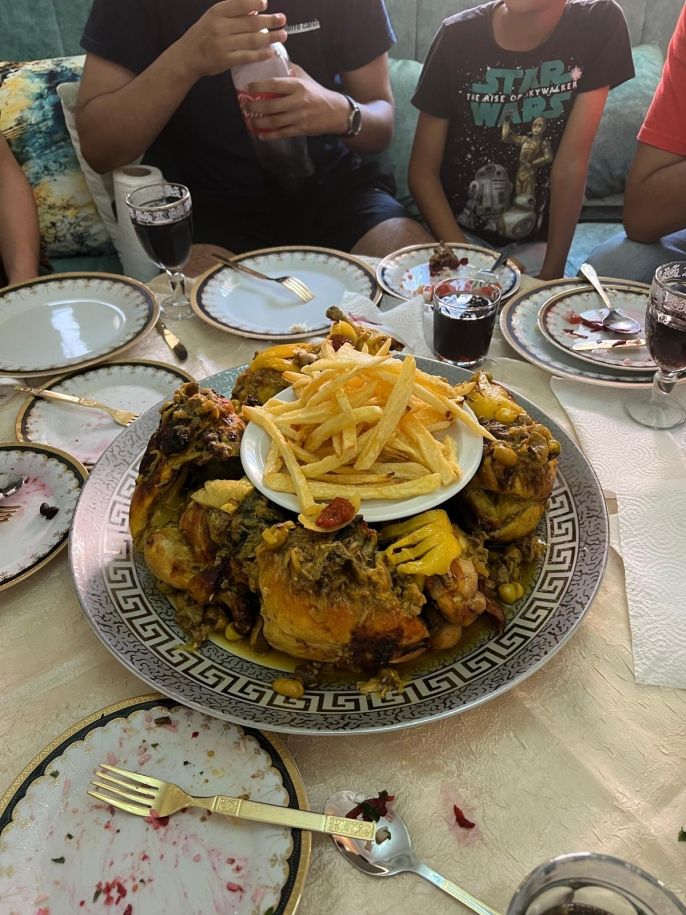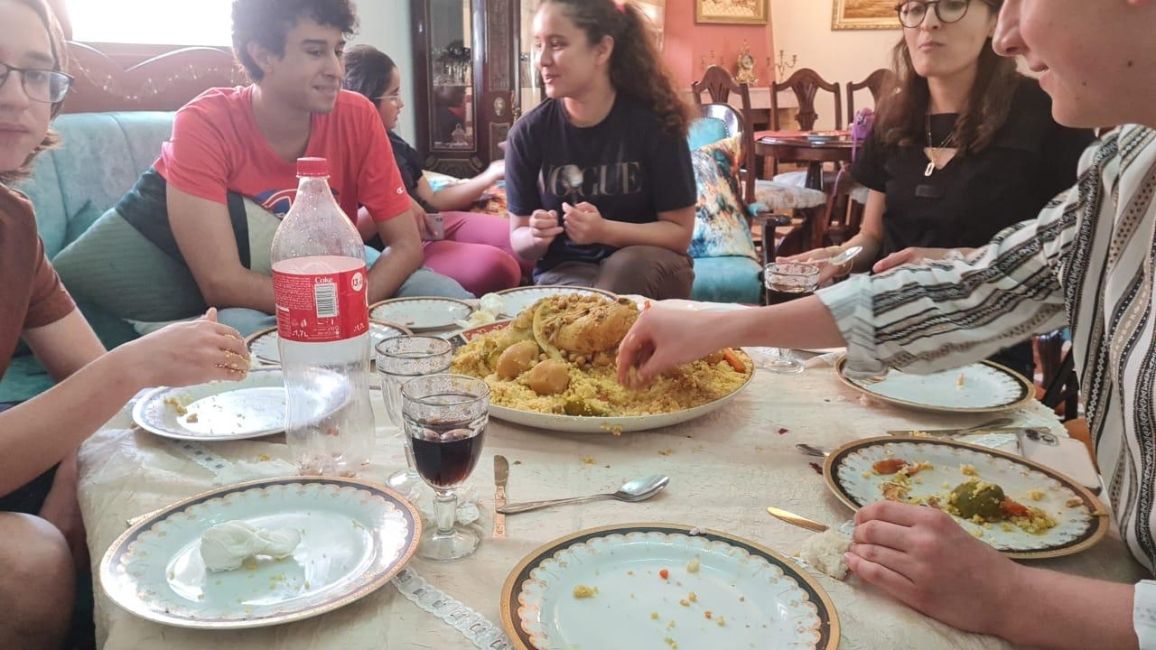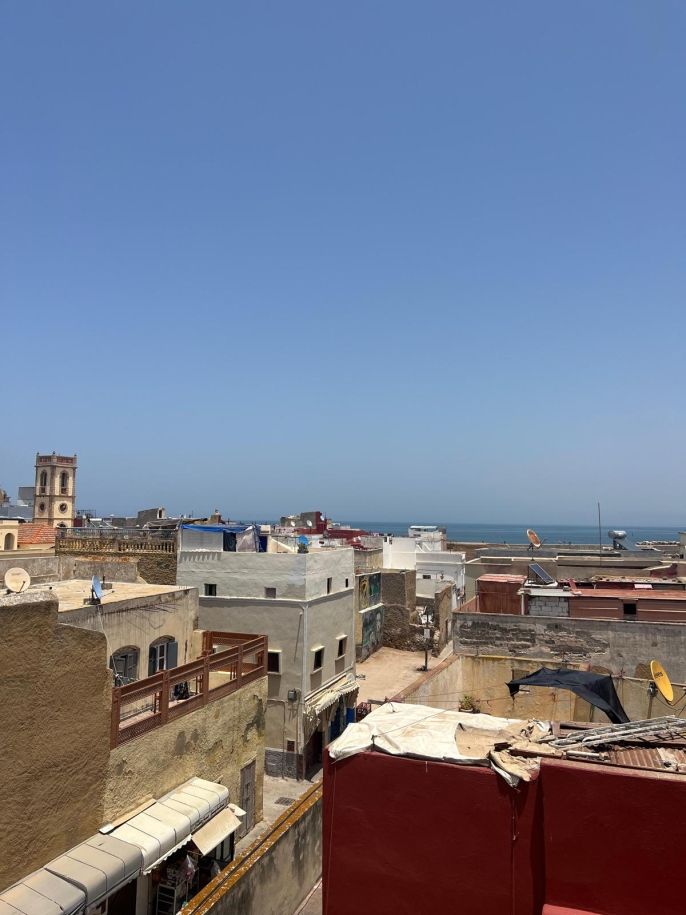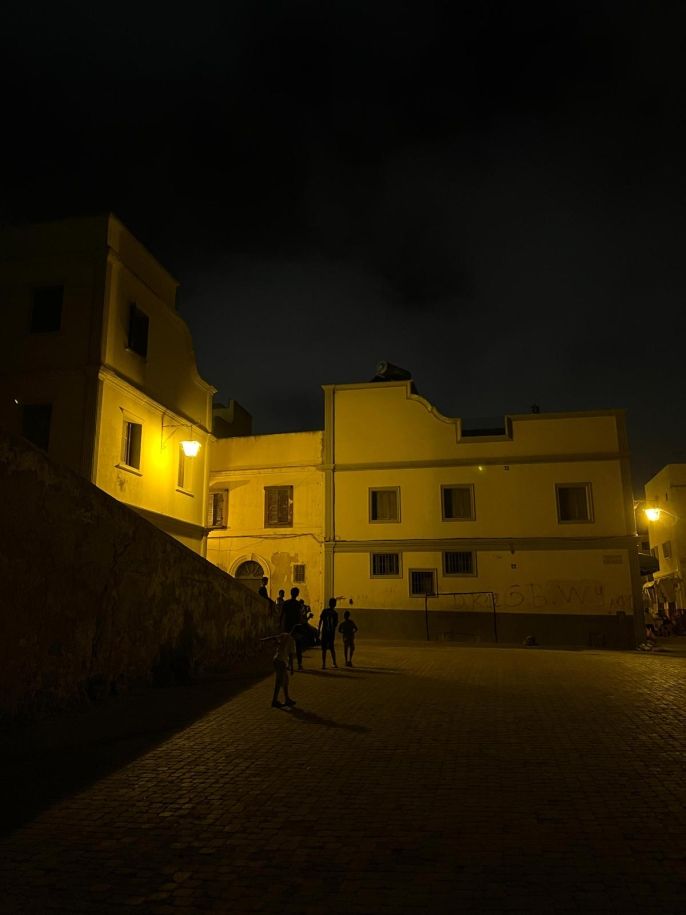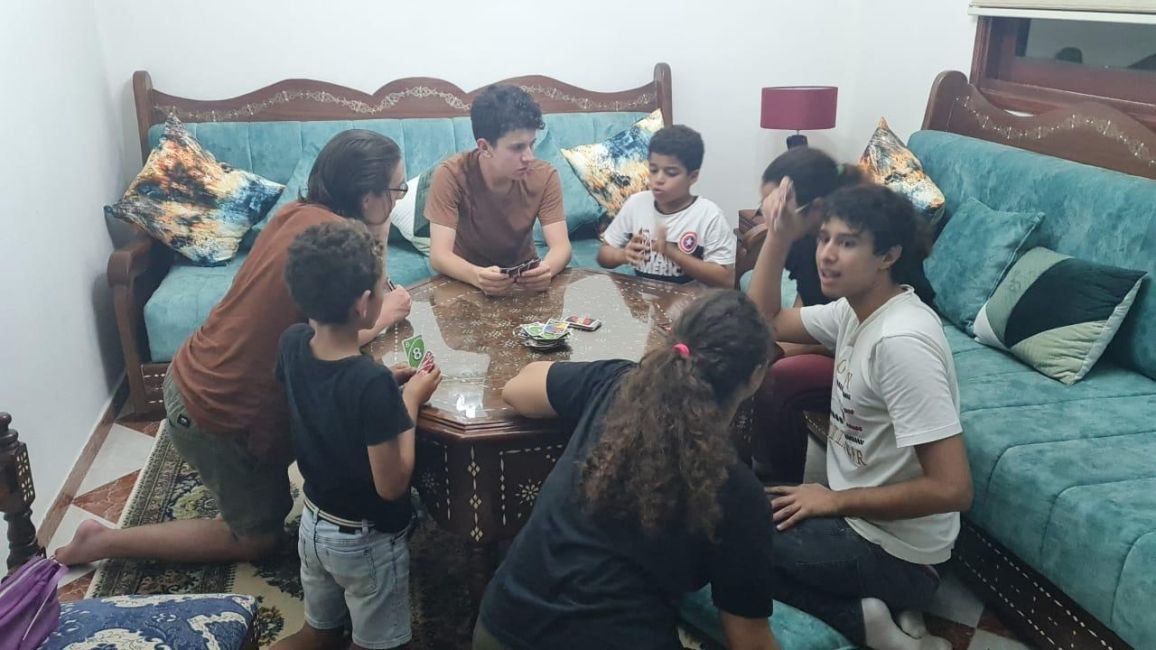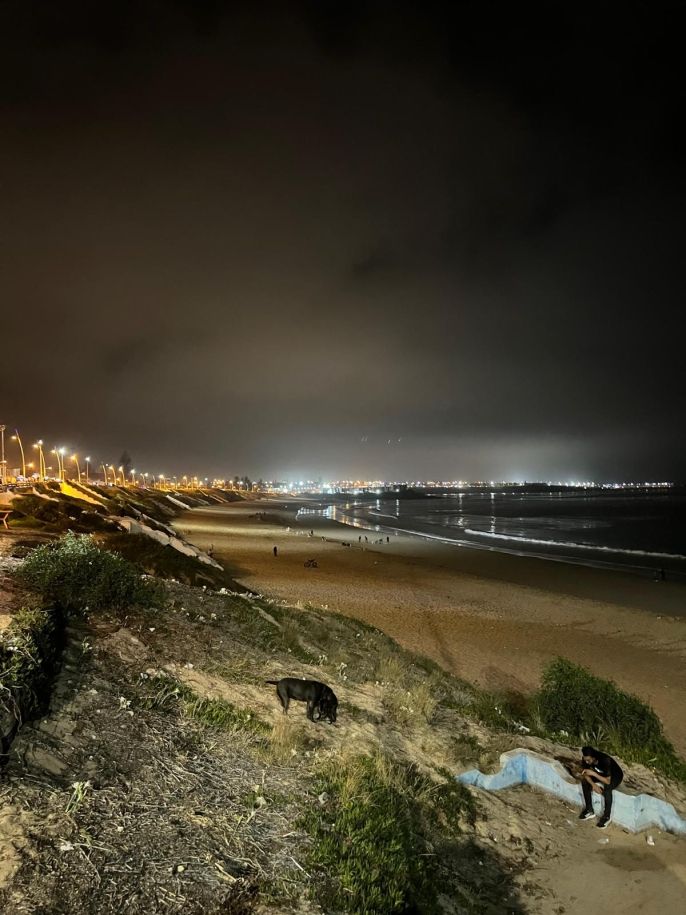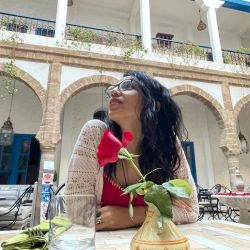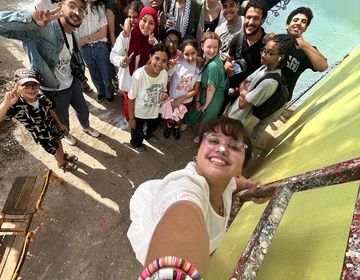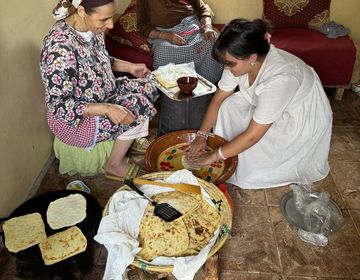Student Spotlight - Mateo Sanguinetti Zelikow, A Love Letter to Doukkala
My first weekend in Morocco was spent in Al Jadida, a small coastal city in the Doukkala-Abda region. We started off our Saturday by going to the beach, where we played football and enjoyed the cool Atlantic water and hot sun. We enjoyed a big late lunch, which included dishes such as Djaj Zitoun and Couscous. In the evening, we experienced one of several hammams in the city, which was a very unique experience. After the hammam, we enjoyed a dinner of lamb shoulder. On Sunday, we visited the old Portuguese City, stopped for some fresh juice at a rooftop terrace, and ate a feast of fresh seafood and sweet couscous at home. This weekend was soundtracked continuously by the beats of Cheba Warda, L'Algerino, Mister You, and more. As my weekend was a success, I'd like to share more about its interesting past.
An important part of Al Jadida’s history is it’s Portuguese colonial history, which is exemplified by the walled city in its center called the Portuguese City of Mazagan, or “Cité Portugaise.” The Portuguese City was built as one of many coastal colonial outposts in Africa in the early 16th century. To this day, the city continues to exemplify a mix of European and North African culture. The architecture of the fortification of the Portuguese City is renowned as an early example of Renaissance military design. After being taken over by Moroccans in 1769, a large part of the city has survived, including the late Gothic Manueline style Church of Assumption. The city fell under disrepair until the 19th century when it was rehabilitated and renamed Al Jadida (The New), and became a center of religious diversity, welcoming Jews, Muslims and Christians.
The Portuguese City is known for its old church-turned-mosque and a unique Moroccan-Jewish history. According to a conversation with my host dad Hicham, “there is a particular point in the Portuguese City where you can see the three Abrahamic religions in one view point; a church, a synagogue and a mosque.” Reminders of Al Jadida’s Jewish past are visible across the city, including in front of the family home I was staying in. According to my host mom Fatimazahra, “the Jewish families of Al Jadida either left or stayed behind, but when their relatives passed away they didn’t come back to claim their homes so the houses fell into disrepair.” I think it’s a shame that such a rich history and important part of Moroccan history hasn’t been adequately preserved.
Doukkala is renowned in Morocco for its delicious food, hospitality and wonderful people. Traditions such as eating couscous with pumpkin and eating watermelon (Dlla7) with bread (Khobz) originate in Doukkala, but are now enjoyed throughout Morocco. My love letter to Doukkala is now complete, as I’m writing this as I pass Casablanca on the way back to Mohammedia. After such an amazing weekend, I’m ready to begin next week’s activities at the ALC.
Written by Mateo Sanguinetti Zelikow
Related Posts
Student Spotlight - Sarah Mathew, Memories in Morocco
Throughout these past 3 weeks, I have immersed myself in the rich culture and diversity of Morocco. This program has given me a sense of community and has helped me... keep reading
Lessons from Ait Bouhaddou
Our students have truly embraced the idea that " everything is a learning experience." Last weekend, we traveled south of Morocco to one of its imperial cities: Marrakesh, the red... keep reading
Taking Our Leadership to Marrakech
Early Saturday morning we boarded the bus to take our weekend excursion to Marrakech. The 3 hour bus ride itself was full of energy as we played “Werewolf” for half... keep reading
